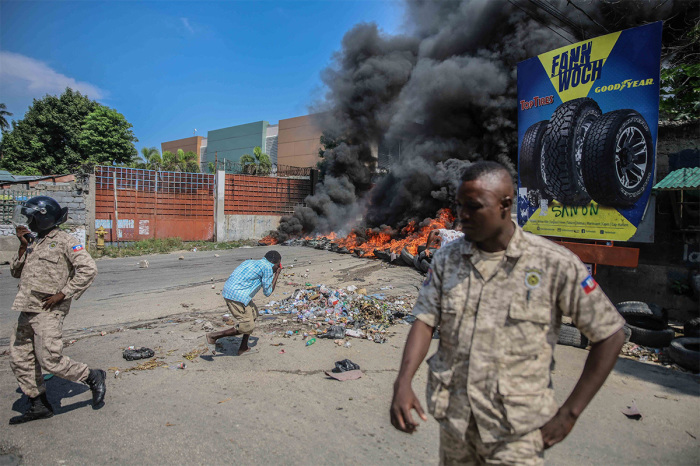Haiti Prime Minister Ariel Henry resigns; UN official calls for more aid amid gang warfare

More than a month after announcing he would resign amid escalating gang violence, Haiti’s Prime Minister Ariel Henry formally submitted his letter of resignation Wednesday, as a senior United Nations official warned that the Caribbean nation is now facing its worst crisis since an earthquake in 2010 that killed more than 220,000 people.
“I hereby acknowledge the state of affairs and present the resignation of my government,” Henry wrote in a letter dated April 24, according to The Haitian Times. “I sympathize with the losses and sufferings endured by our compatriots during this period.”
Henry was stranded outside the country when he submitted his resignation due to gang attacks on the Toussaint Louverture International Airport in Port-au-Prince. The New York Times said Henry’s resignation letter had a Los Angeles address.
A nine-member Transitional Presidential Council was sworn in Thursday and Michel Patrick Boisvert, a former Haitian minister of economy and finance, was named as acting prime minister. Boisvert, along with the council, will now have to work together to bring stability to Haiti, organize a presidential election and reform the Constitution.
Haiti became overrun by gang rule in the wake of the assassination of the country's then-President Jovenel Moïse in July 2021.
Moïse was killed as he pursued an aggressive agenda that included rewriting the country’s Constitution, The New York Times reported. It was not a move that was supported by the United States or some local religious leaders. Critics feared that he was setting the country down a path toward authoritarian rule and threatened the nation's democracy.
Moïse was reportedly pushing for a Constitution that would grant Haiti’s leader immunity for any actions taken while in office. Still, many Haitians felt a need for a new Constitution even if they were critical of Moïse's proposal.
In recent weeks, conditions in Haiti have become so dire, scores of American missionaries, even some who have lived and done work there for many years, have been forced to evacuate.
Carl Skau, deputy executive director of the World Food Programme, told journalists on Thursday that about half the country’s population is now facing food insecurity.
“Half the population — some 5 million people are acutely food insecure,” Skau, who recently returned from the country, said.
He argued that in addition to political and security solutions for Haiti, there is also need for strong humanitarian aid.
“What I saw on the ground is that this can be done, also at the center of the crisis, in Port-au-Prince. But that we need also to do more on resilience and development elsewhere to really try to break this vicious cycle,” he said.
“What we need is an emergency response in Port-au-Prince, but we can continue to do other kinds of support, including development support in the rest of the country.”
In July 2023, the U.S. State Department re-issued a Level 4 travel advisory for Haiti, asking Americans not to travel to the Caribbean nation. The advisory also ordered all U.S. citizens and non-emergency government employees to leave as soon as possible.
Contact: [email protected] Follow Leonardo Blair on Twitter: @leoblair Follow Leonardo Blair on Facebook: LeoBlairChristianPost




























